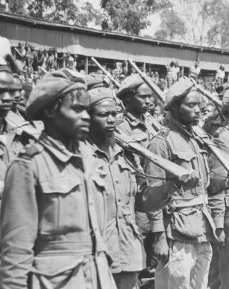Mau Mau or Kenya Land and Freedom Army? Why Words Matter
Mau Mau is a racist substitution for the Kenya Land and Freedom Army
Many words and phrases have hidden histories. The term Mau Mau — often used instead of Kenya Land and Freedom Army (KLFA) — originated as a racial slur during the 1950s British campaign against Kenyan anti-colonial fighters.
British propaganda in the 1950s spread words like mau-maued and mau-mauing to portray freedom fighters as savages, undermining the legitimacy of their struggle for land and justice.
The KLFA, a grassroots army of mainly Kikuyu farmers led by Dedan Kimathi, launched the war for independence against colonial rule, demanding land reform and an end to racial segregation.
Propagandists coined “Mau Mau” to obscure their goals. Although the fighters rejected the label, it remains in global media — a disservice to the men and women who fought under the banner of the Kenya Land and Freedom Army.
Even decades later, public figures have used “mau-mau” as shorthand for intimidation, erasing its racist roots. Language evolves, but its origins shape meaning — understanding that history matters.
Dedan Kimathi, executed by the colonial government in 1957, is now honored as a Kenyan national hero. He always affirmed the movement’s name: Kenya Land and Freedom Army, not Mau Mau.
Why respectful naming matters
Using the correct name — Kenya Land and Freedom Army — restores dignity to a movement that shaped Kenya’s independence. Words carry power: choosing them carefully honors history and those who fought for freedom.
🍲 Love African flavors and stories? Get fresh recipes and articles delivered to your inbox.
✉️ Subscribe to The African GourmetMore articles you may enjoy:
- Dangerous Erupting Volcanoes of Africa
- Top 20 Largest Countries in Africa
- What Is an African Proverb?
- African Water Spirit Mami Wata
- Ancestors Are Guardian Angels









.jpg)


















